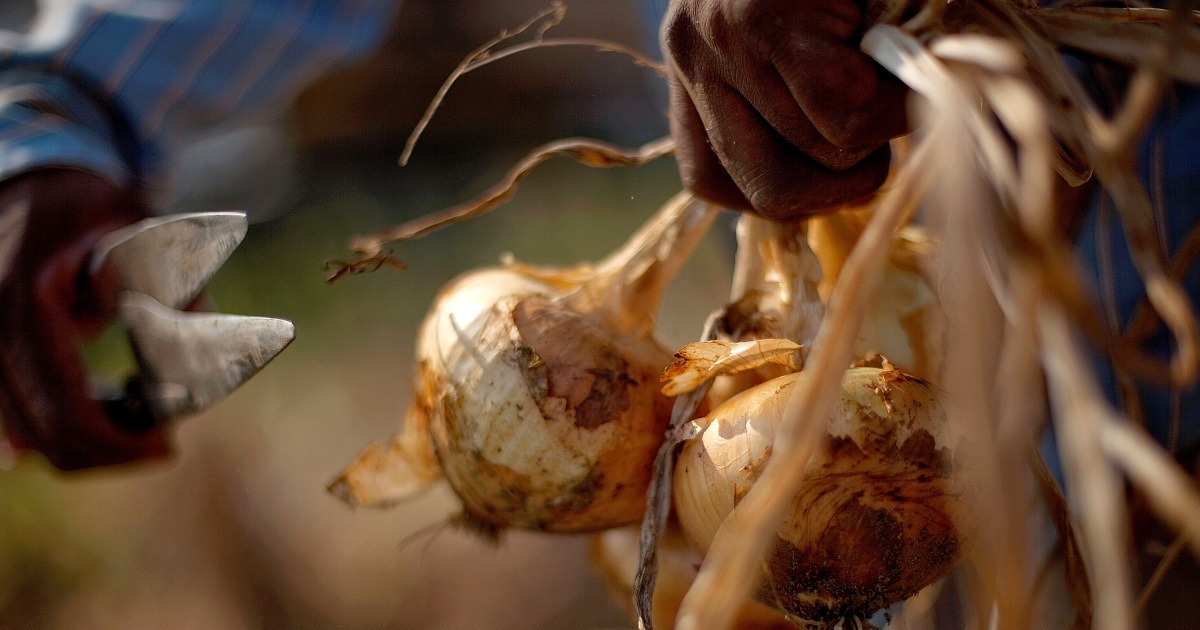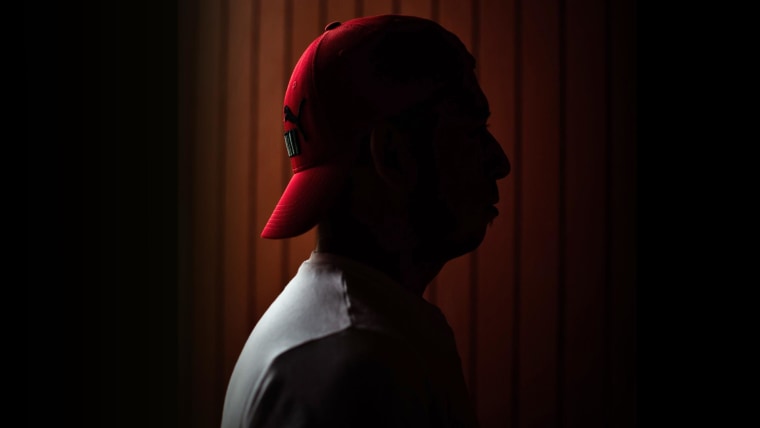Two dozen people were indicted in Georgia last month on charges of smuggling Mexican and Central American immigrants to the United States and forcing them to live in camps and work on farms in the state in what authorities say was an illegal enterprise akin to “modern-day slavery.”
Named “Operation Blooming Onion,” the yearslong probe brought together multiple federal agencies to investigate a “transnational criminal organization” that allegedly engaged in human trafficking, visa fraud, forced labor, mail fraud, money laundering and other crimes that earned the collaborators more than $200 million.
The collaborators of the ring are accused of taking advantage of and defrauding the federal visa program for guest farmworkers, known as H-2A, to bring immigrant workers from Mexico, Guatemala, Honduras and other countries to the United States.
At least two workers died under the working conditions, another was repeatedly raped, while others were kidnapped and threatened with death, according to the allegations in the indictment. Workers were also forced to work at gunpoint, the court documents say, earning 20 cents for each bucket of onions they dug up with their hands. Some were sold to farms in other states.
The defendants face charges that can carry up to a life sentence.
The operation represents one of the country’s largest human-trafficking and visa fraud investigations, according to the Department of Justice.
It is also the first under a new model pursued by Immigration and Customs Enforcement, known as ICE, that deepens its focus on employer accountability, rather than the immigrant workers that are being taken advantage of.
In October, Homeland Security Secretary Alejandro Mayorkas issued a memo directing immigration authorities to cease the massive worksite raids that were used as an enforcement tactic under then-President Donald Trump.
Mayorkas said the tactic, which led to the arrests of sometimes hundreds of unauthorized immigrants, was not focused on “exploitative employers.”
This operation illustrates ICE’s effort to further focus on aiding immigrant victims and cracking down on employers who take advantage of visa programs and unauthorized workers, said two ICE officials who are familiar with the case and the shift in priorities and who asked not to be identified because they were not permitted to speak publicly.
The hope, the officials said, is to work with the immigrant communities and change the perception of ICE among groups that have historically been suspicious of the law enforcement agency, so that immigrants or exploited workers feel comfortable coming forward to aid investigations.
“We want to have them cooperate with us to go at these employers who are kind of using this underserved population as a means to increase their bottom line,” one of the officials said.
In this case, more than 100 workers were freed “from the shackles of modern-day slavery,” David Estes, the acting U.S. Attorney for the Southern District of Georgia, said in a statement, adding that the operation “will hold accountable those who put them in chains.”
“The American dream is a powerful attraction for destitute and desperate people across the globe, and where there is need, there is greed from those who will attempt to exploit these willing workers for their own obscene profits,” he said.
The first of about two dozen named defendants, and the person for whom the “transnational criminal organization” described in the indictment appears to be named, is Maria Leticia Patricio, 70, of Nichols, Georgia. She was charged with conspiracy to commit mail fraud, two counts of mail fraud, conspiracy to engage in forced labor, and conspiracy to commit money laundering.
Patricio pleaded not guilty, and Juanita Holsey Bostick, the lawyer who represents Patricio, according to court documents, declined to comment. Other named defendants who have been arraigned in court have also pleaded not guilty.
Three of the defendants — Victoria Chavez Hernandez, Jose Carmen Duque Tovar and Rodolfo Martinez Maciel — are “considered fugitives and actively are being sought,” the Department of Justice said Thursday. They face charges ranging from conspiracy to commit mail fraud to forced labor.
“This is an ongoing investigation,” said Barry Paschal, a spokesperson for the U.S. Attorney’s office for the Southern District of Georgia. “I’m sure there will be plenty more to come out of this in the months and years to come.”
The criminal enterprise was allegedly widespread and operated within Georgia, Florida, Texas, Mexico, Guatemala and Honduras. Court documents state that the defendants would threaten the victims with violence and deportation; charge them exorbitant fees they couldn’t afford for transportation housing and food; and withhold travel and identification documents to force them to work.
For years, migrants were brought to the United States under false pretenses and pressed to work on farms as day laborers and live in dirty, cramped conditions without regular access to food and water, according to the indictment. Some were also illegally forced to do lawn care or work on construction sites or in restaurant kitchens, the indictment states.
The indictment also alleges that the defendants spent their earnings lavishly on new cars and trucks and gambled millions of dollars at the Seminole Hard Rock Hotel and Casino in Tampa, Florida.
The casino said it had been cooperating with federal authorities for more than a year.
“The casino files all required financial reports consistently,” said casino spokesperson Gary Bitner. “This case was no exception.”
Paschal said his office is continuing to look for victims and encouraged anyone with information to contact the National Human Trafficking Hotline. Meanwhile, the workers who were freed are receiving assistance from a team of victim service providers from both government and nongovernment organizations, though it is unclear what their futures may hold.
Last year, an NBC News investigation found that as the federal visa program for guest farmworkers, known as H-2A, has expanded it has left more guest workers vulnerable to abuse.
Federal laws are supposed to ensure decent working conditions, fair pay and safe housing for guest workers, who are tied to the employers who sponsor them and must return to their home countries after the short-term visas expire.
But workers are often reluctant to speak out against employers who are responsible for their housing, transportation, pay and their ability to stay in the U.S., workers and labor advocates say. The workers also are often in remote, rural areas and don’t speak the language.
“Access to justice is really kind of a practical impossibility for a lot of these workers,” Daniel Costa, the director of immigration law and policy research of the Economic Policy Institute, a liberal think tank, said.
Costa said the extent of the allegations in the indictment was “evidence of the scale of lawbreaking that’s going on in these programs and the ability of employers and traffickers and recruiters to really be pretty bold, because they know for the most part nobody’s looking into what they’re doing.”
Charles Kuck, a longtime immigration attorney in Georgia who has worked on H-2A cases and investigations, said the raid and indictment are both “unusual, when we know that the conditions for workers that they described are not unusual. This is just people getting caught.”
Kuck said while there are many H-2A employers who follow the rules and do everything right, “there are a lot of bad apples out there.”
“I think it’s a sign that the administration takes seriously the problem of human trafficking and mistreatment of workers that come on visas, and things that may not have been priorities under the prior administration, even though they began the investigation as such,” Kuck said.
The memo released by Mayorkas appears to make public that signal of the agency’s new priority.
“We can most effectively protect the American labor market, the conditions of the American worksite, and the dignity of the individual by focusing our worksite enforcement efforts on unscrupulous employers,” Mayorkas said in the memo.
Costa said the memo’s guidance could be a “very big deal” and “a really positive step going more towards protecting the workers themselves and going after bad employers.”




